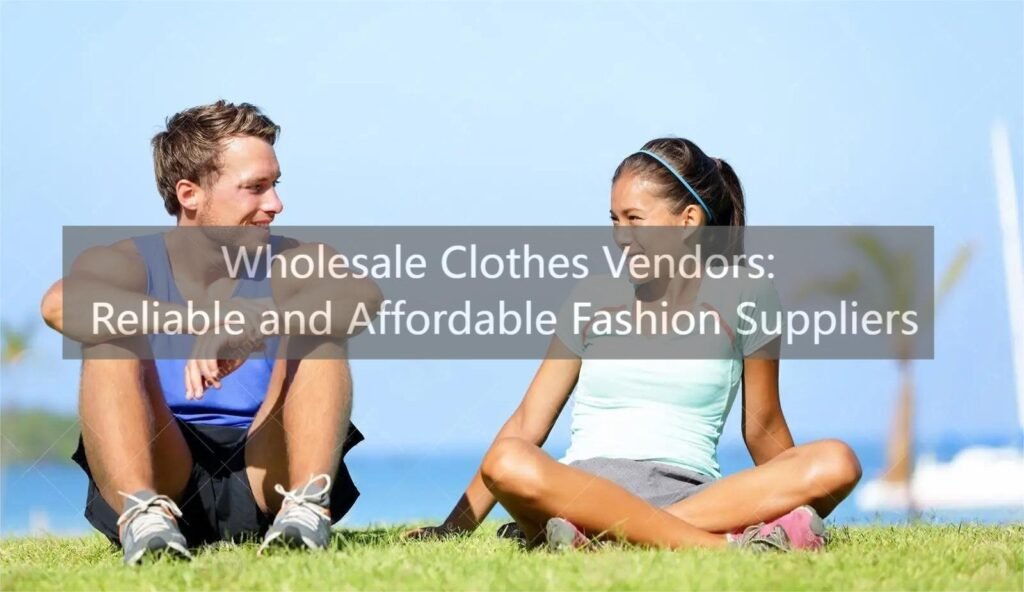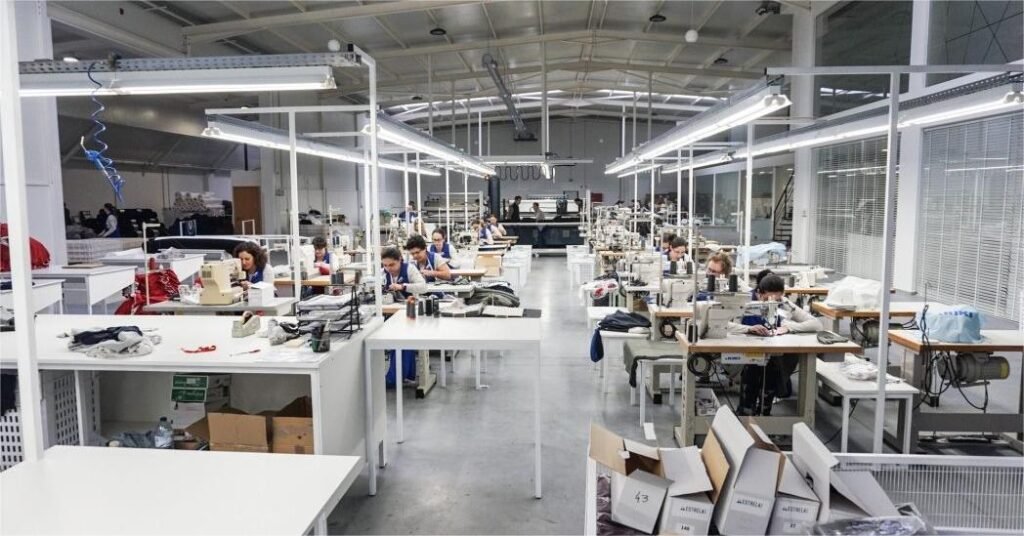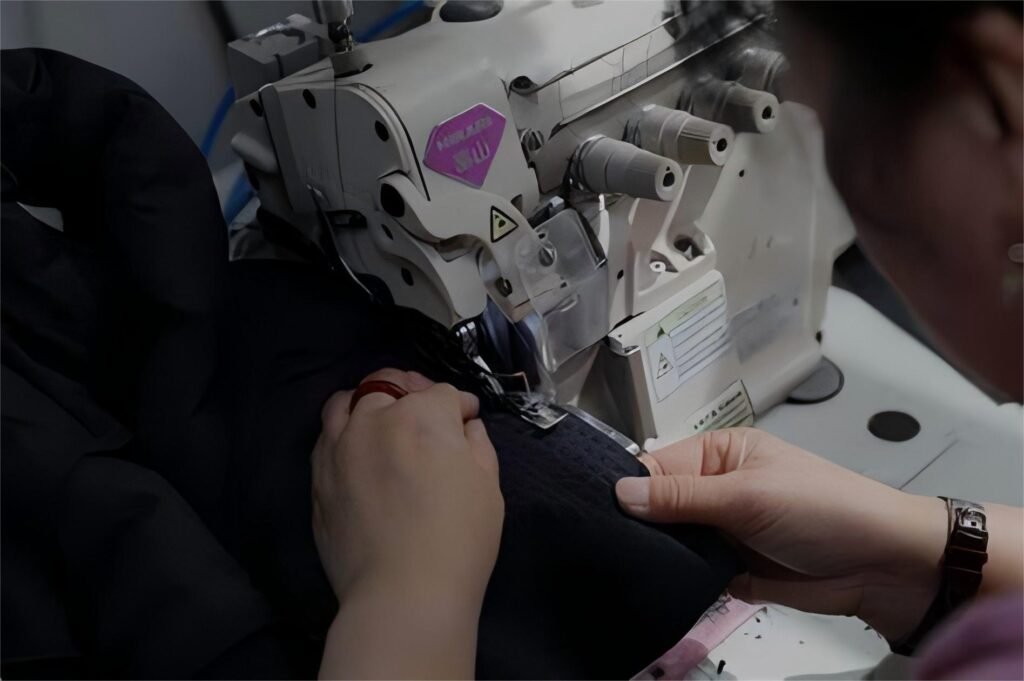No products in the cart.
Custom Yoga Pants
Wholesale Clothes Vendors: Reliable and Affordable Fashion Suppliers
Introduction to Wholesale Clothes Vendors
Wholesale clothes vendors play a crucial role in the fashion industry by supplying retailers and businesses with a wide range of clothing options at affordable prices. These vendors act as intermediaries between manufacturers and retailers, ensuring a smooth supply chain and enabling businesses to offer trendy and fashionable clothing to their customers.
The concept of wholesale clothes vendors is not new, but it has gained significant popularity in recent years due to the rise of e-commerce and the increasing demand for affordable fashion. These vendors offer a wide variety of clothing options, including apparel for men, women, and children, as well as accessories and footwear. They cater to different market segments, from high-end fashion to budget-friendly options, making it easier for retailers to meet the diverse needs of their customers.

Benefits of Wholesale Clothes Vendors
There are several benefits to working with wholesale clothes vendors. Firstly, they offer competitive prices due to their ability to purchase clothing in bulk directly from manufacturers. This allows retailers to maximize their profit margins and offer affordable prices to their customers. Additionally, wholesale clothes vendors often have a wide range of products available, allowing retailers to choose from a variety of styles, sizes, and colors to cater to their target market.
Another advantage of working with wholesale clothes vendors is the convenience they offer. These vendors handle the logistics of sourcing, storing, and delivering the clothing, saving retailers time and effort. They also provide valuable insights into market trends and fashion forecasting, helping retailers make informed decisions about their inventory.
Factors to Consider When Choosing Wholesale Clothes Vendors
When choosing wholesale clothes vendors, there are several factors that retailers should consider. Firstly, reliability is crucial. Retailers should look for vendors with a proven track record of delivering high-quality products on time. They should also consider the vendor’s reputation in the industry and their ability to handle any potential issues or challenges that may arise.
Another important factor is the vendor’s product range. Retailers should ensure that the vendor offers a wide variety of clothing options that align with their target market and brand image. It is also essential to consider the vendor’s pricing structure and whether it aligns with the retailer’s pricing strategy.
Top Wholesale Clothes Vendors in the Market
The wholesale clothes market is highly competitive, with numerous vendors vying for retailers’ attention. Some of the top wholesale clothes vendors in the market include FashionGo, LA Showroom, and Wholesale Fashion Square. These vendors offer a wide range of clothing options, competitive prices, and reliable service.
FashionGo is a popular online marketplace that connects retailers with wholesale clothing vendors. It offers a vast selection of trendy and fashionable clothing options for men, women, and children. Retailers can browse through thousands of products and place orders directly with the vendors. FashionGo also provides valuable insights into market trends and fashion forecasting, helping retailers stay ahead of the curve.
LA Showroom is another prominent wholesale clothes vendor that offers a wide range of clothing options from various brands and designers. It provides retailers with access to the latest fashion trends and offers competitive prices. LA Showroom also offers a convenient online platform for retailers to browse and order products from multiple vendors.
Wholesale Fashion Square is known for its affordable prices and extensive product range. It offers a wide variety of clothing options, including apparel, accessories, and footwear. Retailers can find trendy and fashionable items at competitive prices, making it an attractive option for budget-conscious businesses.
How to Find Reliable Wholesale Clothes Vendors
Finding reliable wholesale clothes vendors can be a daunting task, but there are several strategies that retailers can employ to ensure they choose the right vendors. Firstly, retailers can attend trade shows and industry events to connect with vendors directly. These events provide an opportunity to meet vendors in person, see their products firsthand, and establish relationships.
Another effective method is to conduct thorough research online. Retailers can use search engines and online directories to find wholesale clothes vendors that cater to their specific needs. They can read reviews and testimonials from other retailers to gauge the vendor’s reliability and customer service.
Retailers can also leverage social media platforms to find wholesale clothes vendors. Many vendors have a strong online presence and actively engage with their customers on platforms like Instagram and Facebook. Retailers can follow these vendors, interact with them, and get a sense of their product range and customer service.
Tips for Negotiating with Wholesale Clothes Vendors
Negotiating with wholesale clothes vendors is an essential skill for retailers to maximize their profit margins and secure the best deals. Here are some tips for effective negotiation:
1. Research and compare prices: Before entering into negotiations, retailers should research and compare prices from different vendors. This will give them a benchmark to negotiate from and ensure they are getting the best possible price.
2. Build a relationship: Building a strong relationship with the vendor can go a long way in negotiations. Retailers should communicate openly, be respectful, and show genuine interest in the vendor’s products and business. This can lead to better terms and discounts.
3. Bulk orders and long-term commitments: Vendors are more likely to offer better prices and terms for bulk orders or long-term commitments. Retailers should consider consolidating their orders or committing to regular purchases to negotiate better deals.
4. Be flexible: Retailers should be open to compromise and flexibility during negotiations. This can include adjusting the order quantity, delivery schedule, or payment terms to reach a mutually beneficial agreement.
5. Seek value-added services: In addition to negotiating prices, retailers can also seek value-added services from vendors, such as free shipping, marketing support, or exclusive access to new products. These additional benefits can enhance the retailer’s offering and provide a competitive advantage.

Wholesale Clothes Vendors vs. Retailers: Pros and Cons
Wholesale clothes vendors and retailers both play important roles in the fashion industry, but they have distinct pros and cons.
Wholesale clothes vendors offer several advantages, including competitive prices, a wide range of products, and convenience. They allow retailers to access a vast selection of clothing options at affordable prices, enabling them to offer attractive deals to their customers. Wholesale clothes vendors also handle the logistics of sourcing, storing, and delivering the clothing, saving retailers time and effort.
However, there are also some drawbacks to working with wholesale clothes vendors. Retailers may have limited control over the product selection and may need to rely on the vendor’s fashion forecasting and market insights. Additionally, retailers may face challenges in maintaining consistent quality across different vendors and managing inventory levels effectively.
On the other hand, retailers have the advantage of direct customer interaction and control over their brand image. They can curate their product selection, create a unique shopping experience, and build customer loyalty. Retailers also have more control over pricing and profit margins.
However, retailers face challenges such as higher costs due to purchasing from wholesalers, the need to handle logistics and inventory management, and the risk of unsold inventory. Retailers also need to invest in marketing and customer acquisition to drive sales.
Wholesale Clothes Vendors: Trends and Fashion Forecasting
Wholesale clothes vendors play a crucial role in fashion forecasting and trend analysis. They have access to a wide range of clothing options and work closely with manufacturers and designers, giving them valuable insights into upcoming trends and consumer preferences.
Wholesale clothes vendors often attend fashion shows, trade shows, and industry events to stay updated on the latest trends. They also collaborate with designers and brands to develop exclusive collections and identify emerging styles. By analyzing sales data and customer feedback, wholesale clothes vendors can identify popular trends and forecast future demand.
Fashion forecasting is essential for both wholesale clothes vendors and retailers. It helps vendors make informed decisions about their product range and inventory management. For retailers, fashion forecasting enables them to stock the right products at the right time, ensuring they meet customer demand and stay ahead of their competitors.
Wholesale Clothes Vendors: Sustainable and Ethical Practices
In recent years, there has been a growing demand for sustainable and ethically produced clothing. Wholesale clothes vendors have recognized this trend and are increasingly adopting sustainable and ethical practices in their operations.
Many wholesale clothes vendors now offer eco-friendly and organic clothing options, made from sustainable materials and produced using environmentally friendly processes. They also prioritize fair trade practices, ensuring that workers involved in the production process are paid fair wages and work in safe conditions.
Wholesale clothes vendors are also implementing supply chain transparency initiatives, allowing retailers and consumers to trace the origin of the clothing and ensure ethical production practices. This transparency helps build trust and confidence in the supply chain and allows retailers to align their brand values with their product offerings.
Wholesale Clothes Vendors: International Sourcing and Global Reach
Wholesale clothes vendors have a global reach and often source their products from different countries. This allows retailers to access a wide range of clothing options from various regions, catering to different fashion preferences and market segments.
International sourcing enables wholesale clothes vendors to take advantage of cost-effective manufacturing processes and access unique designs and materials. It also allows them to tap into emerging fashion markets and offer retailers a diverse product range.
However, international sourcing also presents challenges such as language barriers, cultural differences, and logistical complexities. Wholesale clothes vendors need to establish strong relationships with manufacturers and suppliers in different countries to ensure smooth operations and timely delivery.
Wholesale Clothes Vendors: Customer Reviews and Testimonials
Customer reviews and testimonials play a crucial role in the wholesale clothes industry. Retailers often rely on the experiences and feedback of other businesses when choosing wholesale clothes vendors.
Customer reviews provide valuable insights into the vendor’s reliability, product quality, and customer service. Retailers can learn from the experiences of others and make informed decisions about which vendors to work with.
Testimonials from retailers who have had successful partnerships with wholesale clothes vendors can also serve as endorsements and build trust. Positive testimonials can help retailers feel confident in their choice of vendor and establish a long-term relationship.

Conclusion: Reliable and Affordable Fashion Suppliers
Wholesale clothes vendors are reliable and affordable fashion suppliers that play a crucial role in the fashion industry. They offer a wide range of clothing options at competitive prices, enabling retailers to meet the diverse needs of their customers.
When choosing wholesale clothes vendors, retailers should consider factors such as reliability, product range, and pricing structure. They can find reliable vendors through trade shows, online research, and social media platforms.
Effective negotiation skills are essential when working with wholesale clothes vendors. Retailers should research and compare prices, build relationships, and seek value-added services to secure the best deals.
Wholesale clothes vendors and retailers have distinct pros and cons. While wholesale clothes vendors offer competitive prices and convenience, retailers have more control over their brand image and customer interaction.
Wholesale clothes vendors play a crucial role in fashion forecasting and trend analysis. They provide valuable insights into upcoming trends and consumer preferences, helping retailers stay ahead of the curve.
Wholesale clothes vendors are also adopting sustainable and ethical practices, offering eco-friendly and fair trade clothing options. They are implementing supply chain transparency initiatives to ensure ethical production practices.
With their global reach and international sourcing capabilities, wholesale clothes vendors enable retailers to access a wide range of clothing options from different regions.
Customer reviews and testimonials are important in the wholesale clothes industry, providing valuable insights and endorsements for retailers.
In conclusion, wholesale clothes vendors are reliable and affordable fashion suppliers that offer a wide range of clothing options, competitive prices, and valuable insights into market trends. By choosing the right vendors and leveraging their expertise, retailers can provide trendy and fashionable clothing to their customers while maximizing their profit margins.
